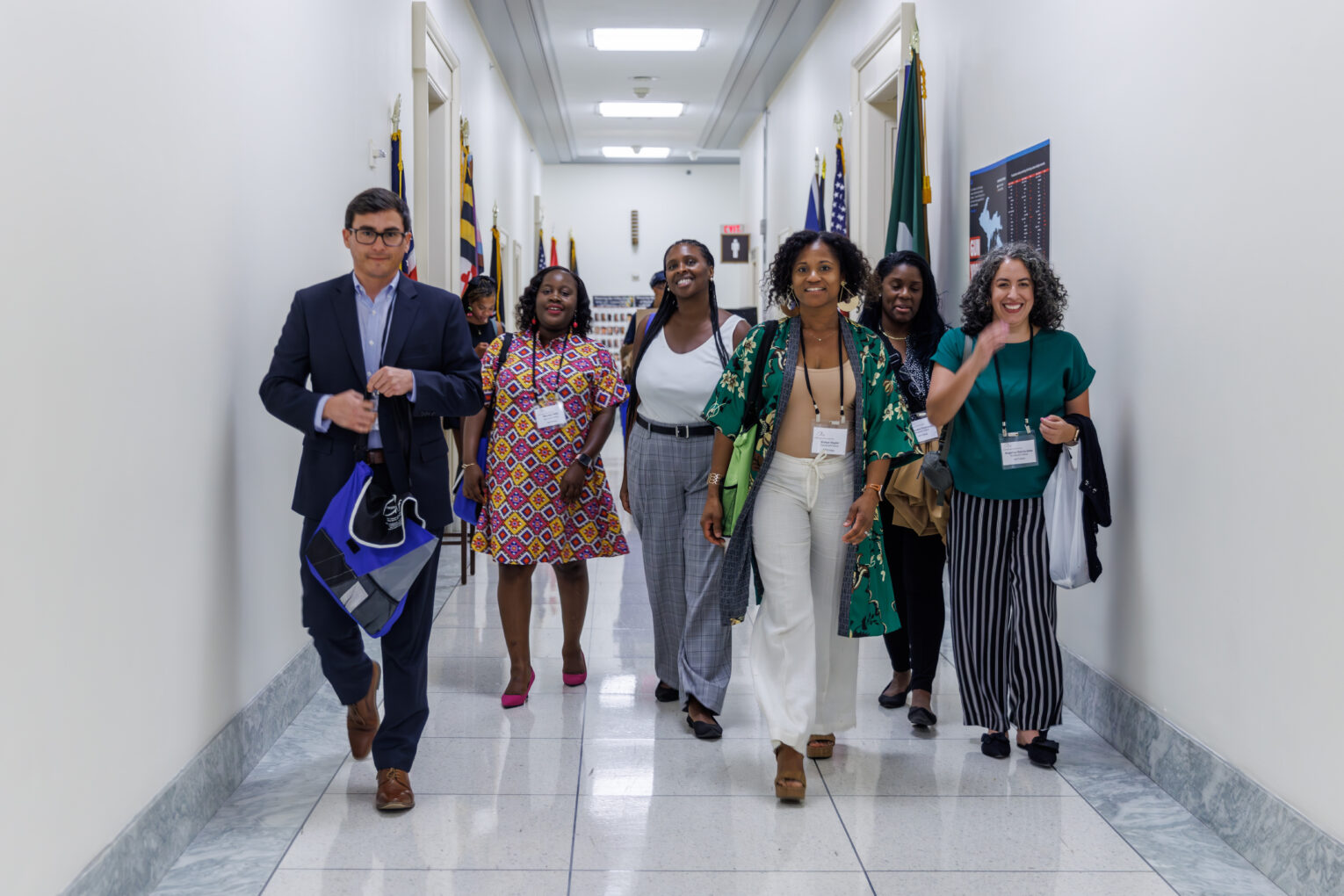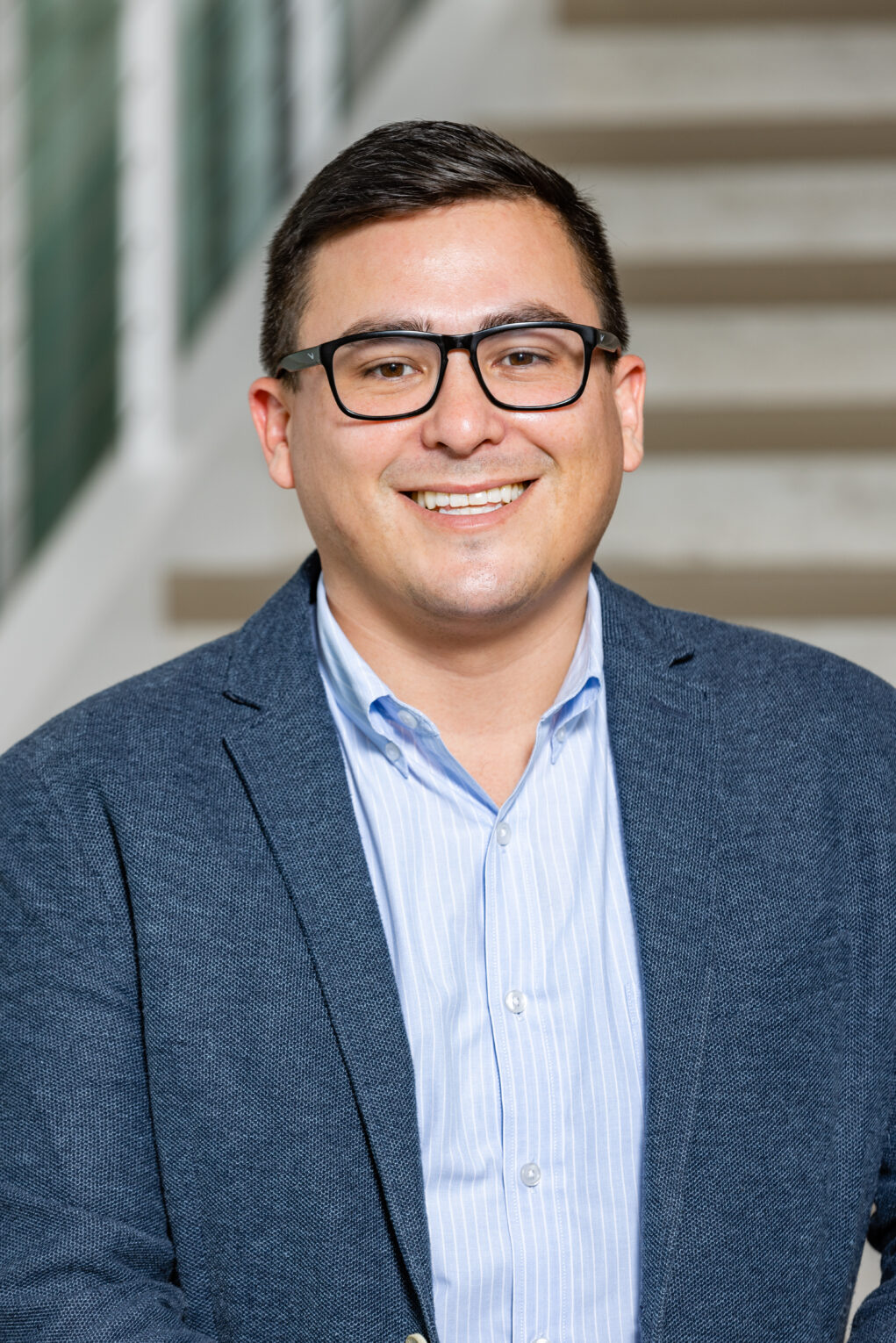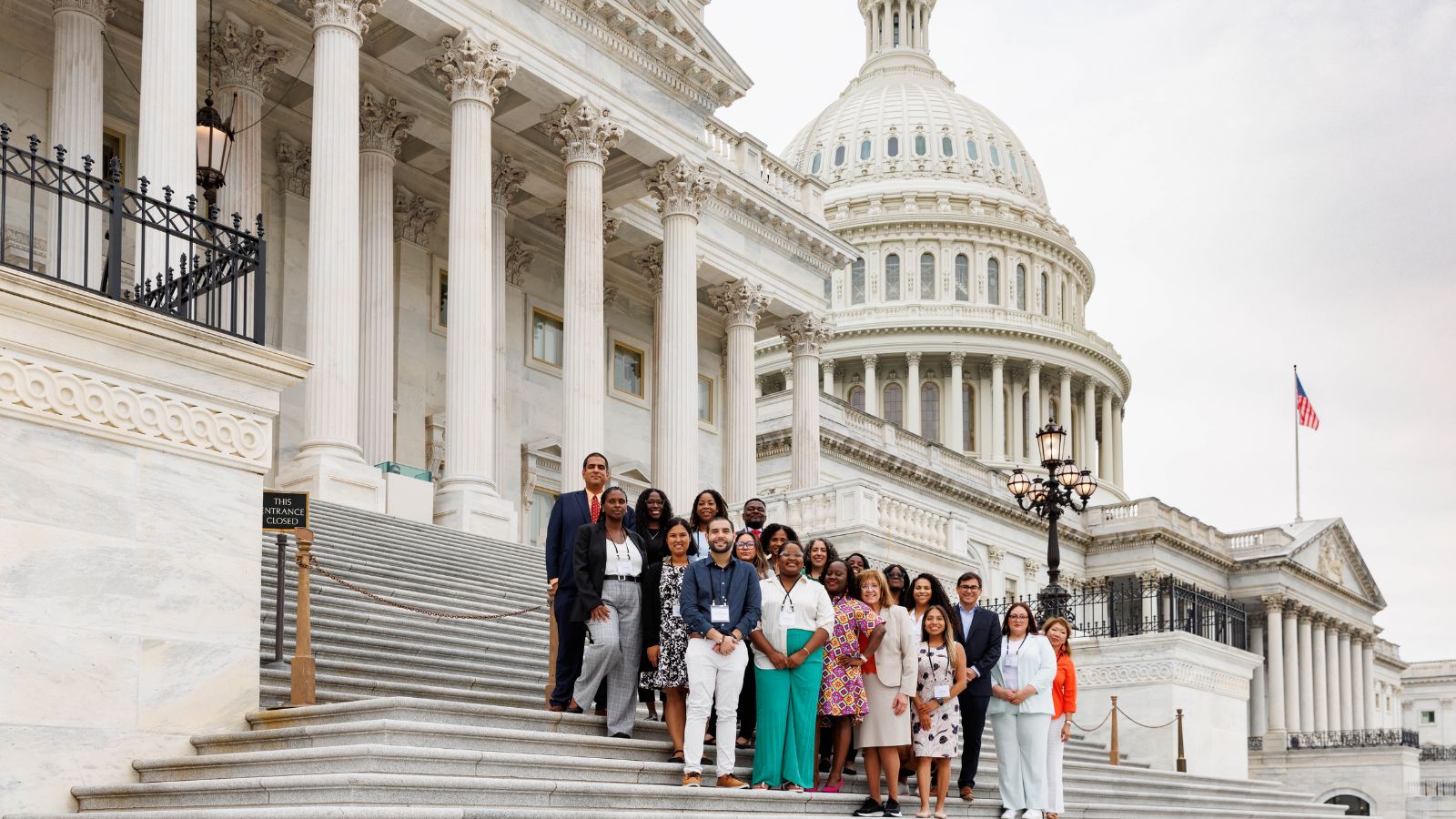In the right atrium of the nursing profession lies a commitment to advancing the health and well-being of the people we serve. In July 2024, six Johns Hopkins School of Nursing students including three PhD students – Marcus Henderson, Aisha Ellis, and myself – and three DNP students – Angelica Garcia-Ditta, Maureen Ndzi, and Kimesha Grant – participated in the Minority Fellowship Program’s 2024 Intensive Training Institute (ITI), a flagship workforce development program sponsored by the the Substance Abuse and Mental Health Services Administration (SAMHSA) and implemented by the American Nurses Association (ANA).
This annual gathering of all MFP fellows, alumni, and mentors celebrates 50 years of fostering diversity in psychiatric mental health and substance use nursing, particularly among ethnic groups who experience higher rates of discrimination, including Black, Latino, and Asian populations. As part of this event, the six of us took our passion for nursing to Capitol Hill, where we met with congressional representatives and legislative staff to advocate for crucial investments in the health workforce pipeline – such as the MFP – and national safety net programs like the Supplemental Nutrition Assistance Program (SNAP) and the Thrifty Food Plan which promote the health of our patients and communities through a different and equally important mechanism.
This advocacy effort was not just a testament to the power of individual nursing voices; it reflected the strength of collaboration within the nursing discipline. By working together, our group of PhD and DNP students demonstrated the combined impact of research and clinical practice in shaping national policy. Those of us in the PhD program bring a deeper expertise in research, while those in the DNP program are experts in clinical practice and the boots-on-the-ground for the implementation of scientific discoveries. Together, we form a powerful force for change.

In its 2022 position statement, the American Association of Colleges of Nursing (AACN) emphasized collaboration between PhD and DNP prepared nurses as essential for the future of the profession. This collaboration begins in the classroom and clinical settings, where we as students are encouraged to engage in joint assignments, team-based literature reviews, and co-authorship of research papers. These collaborations extend to advocacy efforts like those we carried out at the ITI in Washington, D.C., where our respective passions and skills allowed us to multiply the effects of one another’s work, clarifying our arguments and strengthening our storytelling.
Aisha Ellis, a PhD student and SAMHSA/ANA doctoral fellow, emphasized the significance of collaboration at the ITI:
“When we bring our research together with the practical experience of DNP nurses, we can take on problems that are too big for any one of us alone. It’s about working together to make a real difference in people’s lives.”
Angelica Garcia-Ditta, a DNP student, echoed this sentiment, adding, “As nurses, we’re not just here to care for patients; we’re also here to help shape the policies that affect their health. By teaming up with our colleagues in the PhD program, we can combine our strengths to understand what afflicts our patients and what we can do to improve lives one patient at a time.”
The collaboration between School of Nursing PhD and DNP students at the 2024 ITI is a shining example of how nurses can harness the power of its diverse skill sets to drive change. This type of collaboration not only strengthens the impact of nursing in healthcare but also fosters relationships that will continue to shape healthcare practice and policy long after graduation. Through our combined efforts, we are advocating for a future in which healthcare is more accessible, equitable, and effective for all.
Read More:
- MSN Student Appointed to Virginia Health Workforce Development Authority
- Forging Policy: How Can Doulas Improve Black Maternal Health?
- Global Service Learning: Guatemala
About the Author: Fernando Mena-Carrasco
Fernando is a PhD student at the Johns Hopkins School of Nursing, as well as a fellow of the Minority Fellowship Program. Fernando’s focus is in social justice, policy, mental health and immigrant health promotion.


